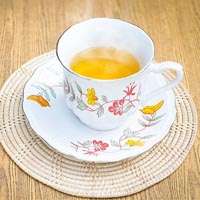 Smart Citations
Smart CitationsSee how this article has been cited at scite.ai
scite shows how a scientific paper has been cited by providing the context of the citation, a classification describing whether it supports, mentions, or contrasts the cited claim, and a label indicating in which section the citation was made.
“Lemongrass” and its applications for the treatment of hypertension
Hypertension (high blood pressure) is the pre-symptom of cardiovascular disease. The number of people living with hypertension has doubled to 1.28 billion and proportionally increased until today. This is a long-term disease and requires continuous monitoring. A traditional Chinese herbal, “Lemongrass”, might be a good choice for the mainstay of hypertension. Some library search engines are used, such as SCI/SCIE, PubMed, and Scopus, within ten to twenty years, from 1999-2020. The searched keywords and phrases are “lemongrass”, “formulation”, “traditional Chinese medicine”, “hydrogel”, “hypertension”, “lemongrass + tea formulation”, “lemongrass + hydrogel”, “Lemongrass + Hypertension”, “Lemongrass + traditional Chinese medicine” etc. This minireview discusses the background of hypertension, lemongrass, research progress, mechanism, lemongrass tea formulations, lemongrass with Traditional Chinese Medicine (TCM) formulations, and the lemongrass hydrogel application in the treatment of hypertension.
How to Cite
PAGEPress has chosen to apply the Creative Commons Attribution NonCommercial 4.0 International License (CC BY-NC 4.0) to all manuscripts to be published.








